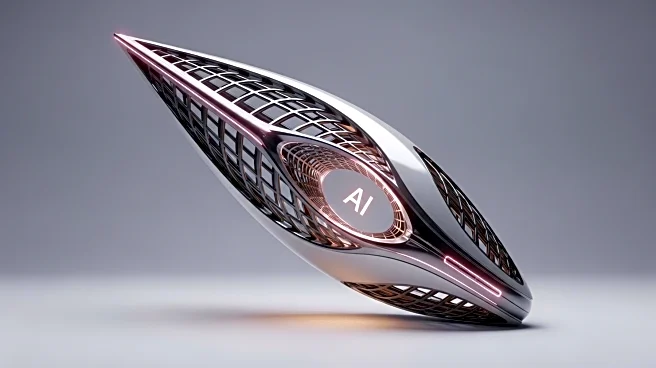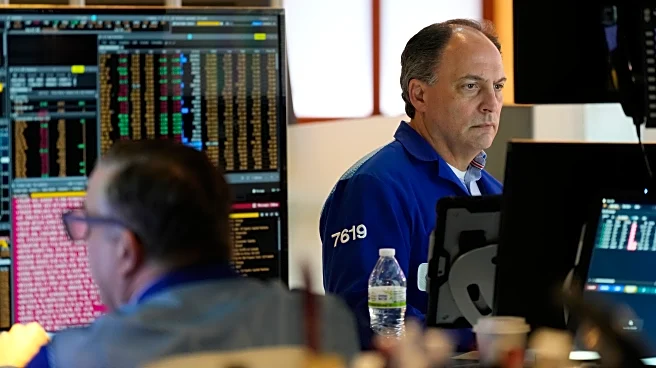What's Happening?
Richard West, Vice President of Creative at Jellyfish, emphasizes the importance of design maintaining its pace ahead of technological advancements, particularly in the context of artificial intelligence (AI). As a juror in the Design category at The Drum Awards Festival, West discusses how AI is reshaping the design process, highlighting the need for brand consistency and the role of human oversight in ensuring quality. He notes that while AI accelerates design delivery and reduces costs, it is crucial for brands to maintain their identity and values across all communications. West argues that AI should be seen as an accelerator rather than a disruptor, allowing human experts to reach solutions more quickly and deliver production-ready assets efficiently.
Why It's Important?
The integration of AI into design processes has significant implications for the creative industry. As brands increasingly rely on AI for delivery and personalization, maintaining brand consistency becomes vital to ensure that a brand's purpose and values are consistently communicated. This shift could lead to cost savings and increased efficiency, benefiting businesses that can effectively balance technology with creative craft. However, there is a risk that over-reliance on technology could undermine the creative aspects of design, making it essential for human oversight to remain a key component. The insights shared by West highlight the need for a strategic approach to AI integration, ensuring that technology enhances rather than replaces creative processes.
What's Next?
As AI continues to evolve, businesses and creative agencies are likely to explore new ways to integrate technology into their design processes. This could involve developing more sophisticated AI tools that enhance creativity while ensuring brand consistency. Stakeholders in the creative industry may need to invest in training and development to equip designers with the skills needed to work alongside AI effectively. Additionally, there may be increased collaboration between technology developers and creative professionals to create solutions that balance efficiency with creativity. The ongoing dialogue around AI and design will likely shape industry standards and best practices in the coming years.
Beyond the Headlines
The discussion around AI and design also raises ethical considerations, such as the potential for AI to perpetuate biases if not properly managed. Ensuring diversity and inclusivity in AI-driven design processes will be crucial to avoid reinforcing stereotypes. Furthermore, the role of human creativity in an increasingly automated world poses questions about the future of work in the creative industry. As technology continues to advance, there may be a need to redefine the roles and responsibilities of designers, emphasizing the unique value that human creativity brings to the table.










